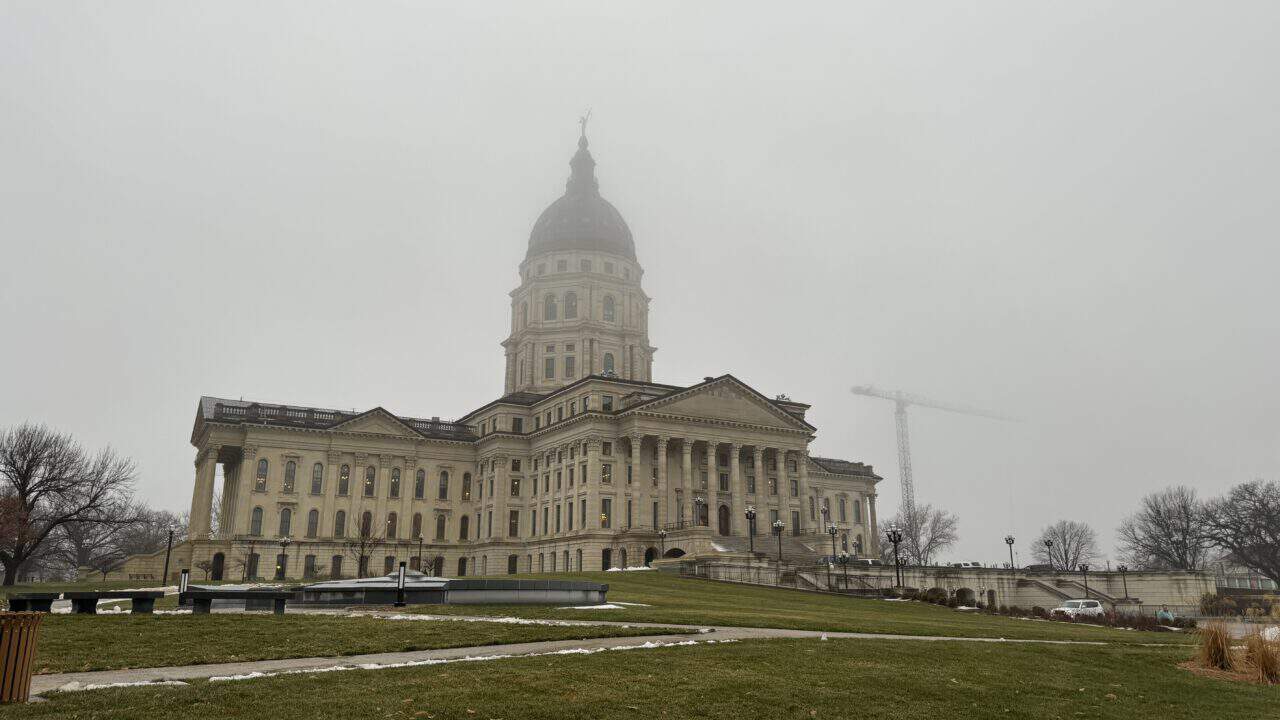
After a protracted battle with Gov. Laura Kelly (D-Kan.), Republican lawmakers may soon have the votes needed to implement nearly half a billion dollars in annual income and property tax cuts. Enactment of these historic cuts willbenefit every individual, family, and small business across the Sunflower State.
Getting tax cuts to the finish line has proven challenging ever since Gov. Kelly took office. The governor continues to veto every income tax cut sent to her desk by the Republican-controlled legislature, depriving her constituents of tax relief despite Kansas imposing a 5.7% top income tax rate – one of the highest in the region.
Now, with a Friday deadline rapidly approaching, lawmakers are racing to deliver a tax cut package that would return some of the state’s $4 billion surplus to the families from whom it was taken. A bill to do just that was approved by negotiators in the House and Senate yesterday.
While far from perfect, the compromise package, CRC 2036, would deliver $400 million in income, property, and business tax cuts at a time when they are needed most. Thanks to the hard work of Senate President Ty Masterson, Speaker Dan Hawkins, Majority Leader Chris Croft, Senator Caryn Tyson, Representative Adam Smith, and countless members of the Republican legislative caucus who have put years of effort into securing a tax cut for hardworking Kansans, this bill may serve as the first step towards even bigger tax relief in 2025 that could finally move Kansas toward a competitive tax environment.
While the new package maintains the three-bracket system instead of adopting a single-rate tax, the bill is still an overall win for Kansas taxpayers. Among the highlights: a permanent income tax cut, giving Kansas a 5.5% top rate. With Nebraska on its way to a flat 3.99% by 2027, and Missouri moving to 4.5%, it’s important that Kansas not risk falling behind.
On top of that, the compromise secures lasting property tax relief for Kansas. Rather than continue subsidizing local government budgets via the LAVTR fund, the bill would repeal that failed experiment, opting instead for a historic cut to the statewide property tax mil rate. It is clear that Kansas leaders – unlike those in other conservative states such as Idaho and Nebraska – understand that lasting property tax reform is only achieved through rate reductions and restrictions on local government spending.
Unfortunately, tax relief should have been enacted long before now. Republicans secured narrow supermajorities in both chambers in 2022, giving them the necessary votes to override Gov. Kelly’s vetoes. But so-called conservative Senators Dennis Pyle, Rob Olsen, Alicia Straub, and John Doll colluded with their Democrat governor in plain sight, breaking with the Republican caucus to uphold Gov. Kelly’s veto of tax cut bill SB 169. Meanwhile in the House, Reps. Michael Dodson, Randy Garber, Mark Schreiber, David Younger, and Trever Jacobs copied their counterparts in the Senate and killed Republicans’ chances of overriding Gov. Kelly’s veto of HB 2284.
Voters will head to the polls during the primary election this June knowing that this rag-tag band of legislators abandoned their conservative principles to vote with Democrats against much-needed income tax relief. Thanks to their decision to thwart tax cuts for Kansan families, Dennis Pyle and company now face strong Republican primary challengers who plan to hold them accountable for voting in lockstep with a progressive Democrat governor to defeat tax relief for the poor and middle-class.
Although Gov. Kelly and her “conservative” friends in the legislature can’t stomach a single-rate tax, their criticisms miss the mark. With over $4 billion in taxpayer dollars lying untouched in surplus dollars and the rainy-day fund, Kelly’s critique of a flat tax as “unsustainable” is woefully unfounded.
In virtual testimony to a Senate committee on March 11, Grover Norquist extolled the merits of a single-rate tax:
“Single rate taxes force honesty and transparency on the part of politicians, while providing simplicity and fairness to families and businesses who pay those taxes,” said Norquist. “Once a state moves to just one income tax rate, politicians must agree to raise everyone’s taxes in order to pay for their new idea. On the other hand, they can reduce everyone’s taxes in a simple and transparent manner in times when the government has been a good steward of their money.”
Gov. Kelly and her cronies also incorrectly argued that a single-rate tax would only benefit those making more than $250,000 a year and would make the state’s tax system regressive. She fails to consider that every Kansas taxpayer would see an immediate and ongoing reduction in their income tax bill, while ensuring that taxes paid are proportional to earned income – a stable and fair method of taxation designed to stimulate economic growth and in-migration.
Single-rate taxes are popular in the 14 states that currently employ them. In deep blue Illinois, voters rejected a heavily funded effort by Governor J.B. Pritzker to replace their 5% flat tax with a progressive, “tax-the-rich” scheme in 2020 – the same year they elected Joe Biden by a 16-point margin.
Moving to a single-rate income tax is the ideal solution for Kansas taxpayers and the state economy. But if such reform proves impossible under a vindictive Democrat governor eager to wield her veto pen against the hardworking taxpayers of her state, the compromise bill gives lawmakers a smaller victory to take home to their constituents.
No matter what happens this week, lawmakers can keep an eye on the June primary, where the few Republicans who joined with Democrats to uphold the governor’s veto will face a grueling reelection fight against those who wish to hold them accountable.

